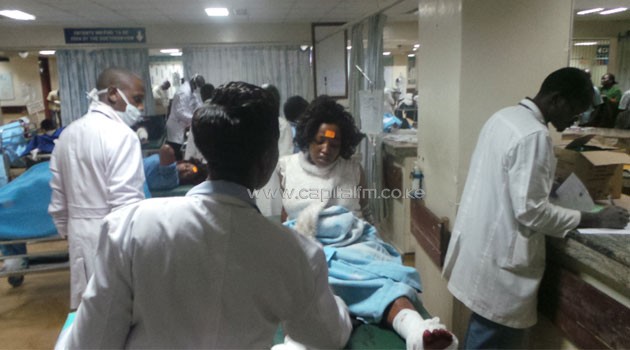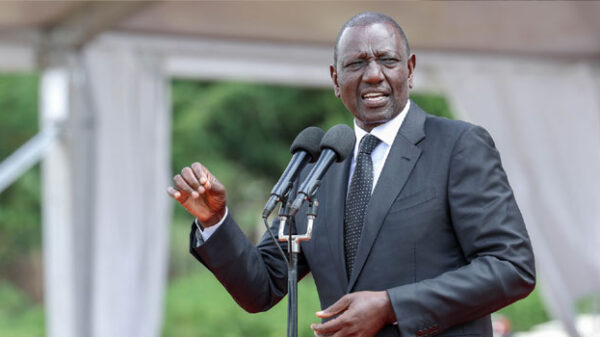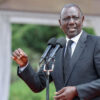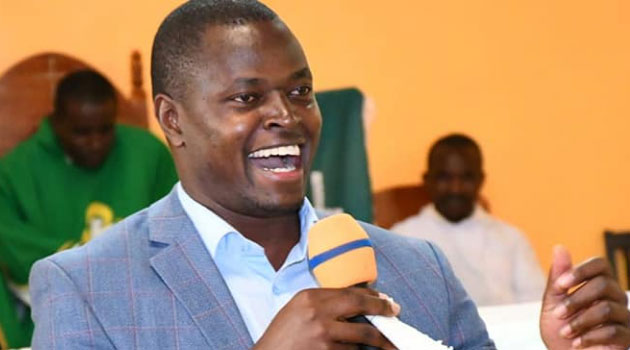NAIROBI, Kenya, Oct 27 – Sh244 billion ($2.2 billion) has been pledged to Kenya for the provision of Universal Health Coverage (UHC) to guarantee quality and affordable healthcare, with additional funding committed under the post-COVID-19 Economic Recovery Strategy for inequality, social cohesion and social protection.
The pledges which amount to a massive $32.1 billion funding in total are based on a global Call to Action to protect women, children and adolescents in the COVID-19 crisis and beyond.
It will be issued in eight countries in Africa, which are part of an expanding campaign coordinated by The Partnership for Maternal, Newborn & Child Health (PMNCH).
These donor pledges which were announced in December 2020, will address the most frequently disrupted services i.e. family planning and contraception services at 44pc with 121 countries reporting disruptions. 41 percent of countries reported disruptions to services for the management of moderate and severe malnutrition.
“The health of women, children, and adolescents is now at great risk, with pre-existing inequities compounded by narrowing access to essential health services,” former Prime Minister of New Zealand and Chair of PMNCH, Helen Clark said. “Our concern is that resources directed to them, which were already insufficient, are being diverted away to respond to other challenges exacerbated by the COVID-19 pandemic. Basic primary health care matters immensely in saving lives and protecting rights.”
Women, newborns, children, and adolescents have experienced disruptions of almost 40 percent of key health services since the pandemic, according to the WHO.
Of the $32.1 billion total pledged to date, almost 60 percent or $18.9 billion in domestic funding is being committed by low and middle-income countries in response to PMNCH’s Call to Action, including Burkina Faso, India, Kenya, Liberia, Malawi, Nigeria, South Africa and Zambia.
The remaining $13.2 billion is from official development assistance committed as grants from high income countries and a private foundation.
“The majority of the pledges are domestic funding coming from middle and low-income countries themselves, with almost $17 billion from African nations,” said Clark. “These nations are acting and not waiting for donations from others to help women, children and adolescents in their countries.”
Of this $32.1 billion, $15.2 billion (47 percent) is money to address COVID-19.
The other half is directed to protecting existing sexual, reproductive, maternal, and newborn, child & adolescent health budgets, and protecting women, children and adolescents from violence.
“These funds will support women, children and adolescents in getting health services and priority social protections throughout the COVID-19 crisis and recovery periods,” said Joy Phumaphi, Executive Secretary of the African Leaders Malaria Alliance and a leader in the PMNCH network.
-The impact of the COVID-19 pandemic on women, newborns, children and adolescents-
Severe disruptions to essential services due to COVID-19 have been estimated to result in almost 1 million additional child and maternal deaths between May 2020-April 2021.
Child Health- In 2020, because of the secondary effects of the pandemic, the number of children that have not received a single vaccine shot against preventable diseases, including diphtheria, tetanus and pertussis (so-called “zero-dose” children), has gone up by 30 percent in the least developed countries, leaving them vulnerable to some of the world’s deadliest diseases.
COVID-19 cases- More than 14 million children and adolescents have contracted COVID-19 in 104 countries. That is more than 14 percent of the 102 million infections globally. Infection patterns have shifted towards younger age groups due to rising vaccine coverage among adults.
COVID-19 vaccinations- As of October 2021, only 1 in 27 people in low-income countries, or less than 4 percent, has been vaccinated with at least one dose. More than 6.2 billion doses have been administered globally, but only 3 percent of those in Africa have been fully vaccinated.
Almost 200,000 additional stillbirths are estimated to have occurred between October 2020 and September 2021 due to the impact of the pandemic. It is estimated that the chances of stillbirth increased by almost 30 percent in low and middle-income countries, compared to the pre-pandemic level.
An analysis of unwanted pregnancy in 115 low and middle-income countries found as many as 1.4 million unintended pregnancies may have occurred before women were able to resume use of family planning services.
Violence against women- Violence against women and children during COVID-19 has increased. For example, domestic violence hotlines in some countries reported a five-fold increase in calls after physical distancing and lockdown measures were introduced.
COVID-19 has created at least 1.5 million orphans, out of four million deaths worldwide, according to a study published in The Lancet. A person under 18 loses a caregiver every 12 seconds. For every two COVID-19 deaths worldwide, one child is left behind to face the death of a parent or caregiver.
“The pandemic exposed critical weaknesses in our health systems. Battling the COVID-19 pandemic has shown us how much basic primary health care matters in saving lives and protecting the rights of women and children,” said Githinji Gitahi, Global CEO of Amref Health Africa and a leader in the PMNCH network. “We need to achieve universal health coverage to ensure that women, children and adolescents are protected at the primary level.”
Health systems worldwide were ill-prepared to cope with the scale of the pandemic and to mitigate the disruption to essential sexual, reproductive, maternal, and newborn, child and adolescent health services. In addition, the impact of the COVID-19 pandemic extends far beyond the health sector.
WHO noted that women, children and adolescents are among the most vulnerable and impacted by the critical socio-economic consequences of the pandemic, exacerbating poverty, marginalization and inequities with the current crisis set to undermine decades of gains made on gender equality and women’s equal participation in the labor force.
“Women have been disproportionately hit by job-losses at 4.2 percent of jobs as a result of the pandemic, compared to 3 percent of men’s employment,” said Gitahi. “If no action is taken to counter the gendered effects of the pandemic on women’s jobs, the global GDP growth is estimated to be $1 trillion lower in 2030 than it would be if women’s unemployment simply tracked that of men.”

























































